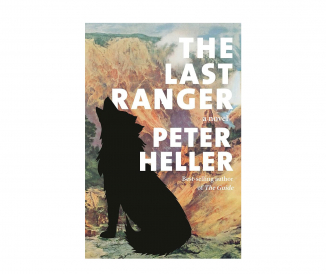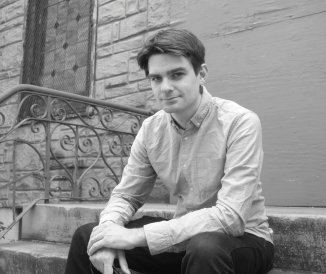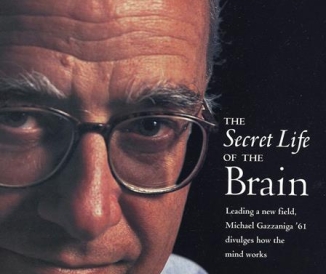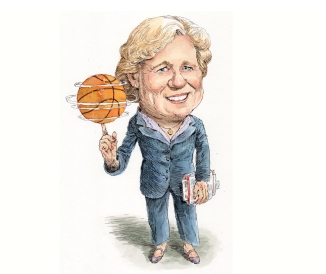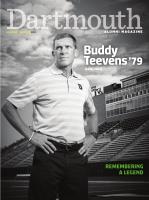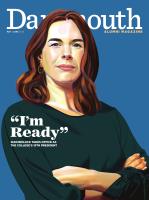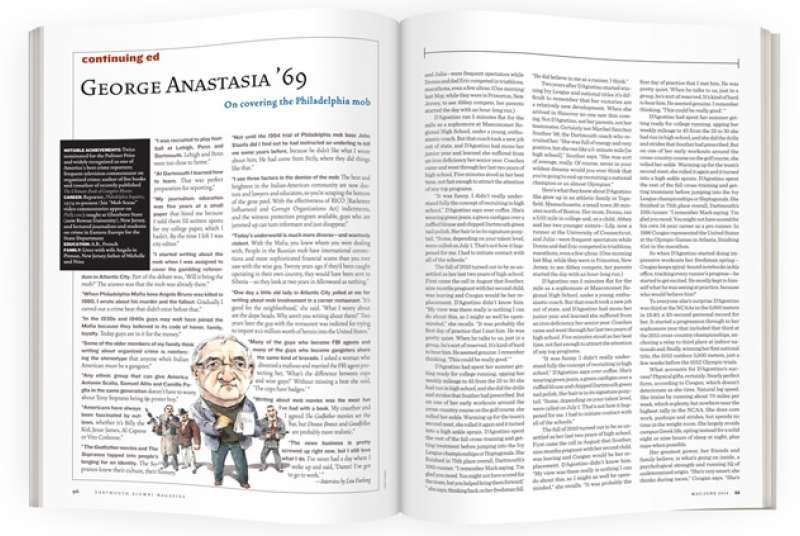
George Anastasia ’69
Notable Achievements: Twice nominated for the Pulitzer Prize and widely recognized as one of America’s best crime reporters; frequent television commentator on organized crime; author of five books and coauthor of recently published The Ultimate Book of Gangster Movies
Career: Reporter, Philadelphia Inquirer, 1974 to present (his “Mob Scene” video commentaries appear on Philly.com); taught at Glassboro State (now Rowan University), New Jersey, and lectured journalists and students on crime in Eastern Europe for the State Department
Education: A.B., French
Family: Lives with wife Angela in Pitman, New Jersey; father of Michelle and Nina
“I was recruited to play football at Lehigh, Penn and Dartmouth. Lehigh and Penn were too close to home.”
“At Dartmouth I learned how to learn. That was perfect preparation for reporting.”
“My journalism education was five years at a small paper that hired me because I told them I’d written sports for my college paper, which I hadn’t. By the time I left I was city editor.”
“I started writing about the mob when I was assigned to cover the gambling referendum in Atlantic City. Part of the debate was, ‘Will it bring the mob?’ The answer was that the mob was already there.”
“When Philadelphia Mafia boss Angelo Bruno was killed in 1980, I wrote about his murder and the fallout. Gradually I carved out a crime beat that didn’t exist before that.”
“In the 1930s and 1940s guys may well have joined the Mafia because they believed in its code of honor, family, loyalty. Today guys are in it for the money.”
“Some of the older members of my family think writing about organized crime is reinforcing the stereotype that anyone who’s Italian American must be a gangster.”
“Any ethnic group that can give America Antonin Scalia, Samuel Alito and Camille Paglia in the same generation doesn’t have to worry about Tony Soprano being its poster boy.”
“Americans have always been fascinated by outlaws, whether it’s Billy the Kid, Jesse James, Al Capone or Vito Corleone.”
“The Godfather movies and The Sopranos tapped into people’s longing for an identity. The Sopranos knew their culture, their history.”
“Not until the 1994 trial of Philadelphia mob boss John Stanfa did I find out he had instructed an underling to kill me some years before, because he didn’t like what I wrote about him. He had come from Sicily, where they did things like that.”
“I see three factors in the demise of the mob: The best and brightest in the Italian-American community are now doctors and lawyers and educators, so you’re scraping the bottom of the gene pool. With the effectiveness of RICO [Racketeer Influenced and Corrupt Organizations Act] indictments, and the witness protection program available, guys who are jammed up can turn informant and just disappear.”
“Today’s underworld is much more diverse—and wantonly violent. With the Mafia, you knew whom you were dealing with. People in the Russian mob have international connections and more sophisticated financial scams than you ever saw with the wise guy. Twenty years ago if they’d been caught operating in their own country, they would have been sent to Siberia—so they look at two years in Allenwood as nothing.”
“One day a little old lady in Atlantic City yelled at me for writing about mob involvement in a corner restaurant. ‘It’s good for the neighborhood,’ she said. ‘What I worry about are the dope heads. Why aren’t you writing about them?’ Two years later the guy with the restaurant was indicted for trying to import $10 million worth of heroin into the United States.”
“Many of the guys who become FBI agents and many of the guys who become gangsters share the same kind of bravado. I asked a woman who divorced a mafioso and married the FBI agent protecting her, ‘What’s the difference between cops and wise guys?’ Without missing a beat she said, ‘The cops have badges.’ ”
“Writing about mob movies was the most fun I’ve had with a book. My coauthor and I agreed The Godfather movies set the bar, but Donnie Brasco and Goodfellas are probably more realistic.”
“The news business is pretty screwed up right now, but I still love what I do. I’ve never had a day where I woke up and said, Damn! I’ve got to go to work.”

